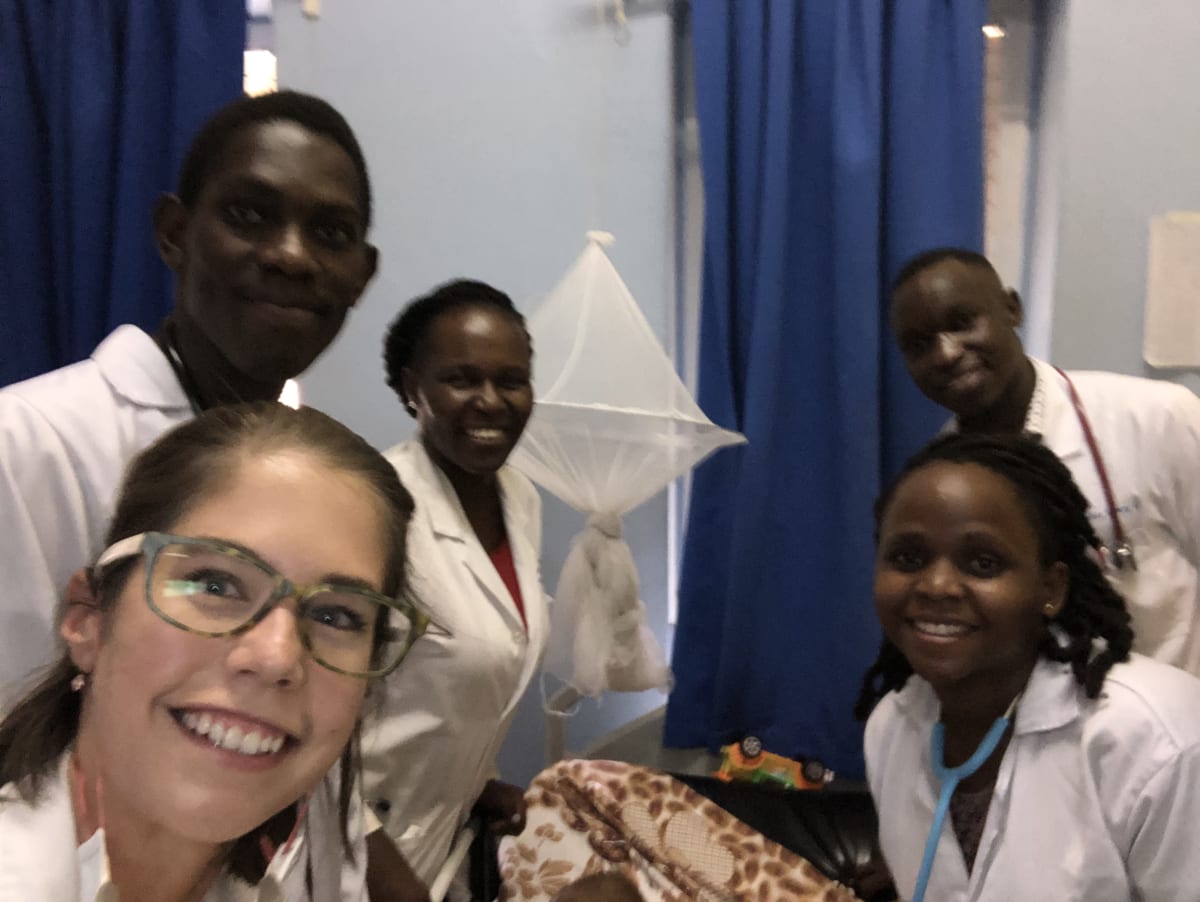Our collaborative team (Uganda Cancer Institute, University of Minnesota, University of Washington) is planning to conduct research on the viral causes of febrile neutropenia in pediatric oncology patients at the Ugandan Cancer Institute via metagenomic sequencing. This will help establish local clinical guidelines for the treatment of febrile neutropenia in these patients and improve local antibiotic stewardship and thus patient care and survival.
This study is aimed to be beneficial for pediatric oncology patients. We chose this population as there is not a lot of scientific data for this group of patients in Uganda despite increasing number of patients and complexity of care they require.
Our team's aim is to help develop local febrile neutropenia treatment guidelines with respect to local pathogen epidemiology. There are multiple members on the team at different stages of the training, including Ugandan colleagues so the continuity of the project is assured.










My Global Health Experience
Uganda is a country with a rich colonial history and has been recently recovering after the fall of Idi Amin’s regime and the ascension of president Museveni in 1986.1 Since that time a lot has changed in this country. It is a relatively safe country and it is one of the only East African countries which has a cancer center of excellence.2 This all sounded great to me.
I am currently a third-year pediatric resident that matched into a pediatric hematology and oncology fellowship and wanted to enrich my experience in this field while helping others on a global scale. I came to Uganda through my global health elective at the University of Minnesota for my research and clinical experience in pediatric hematology and oncology. And I ended up working on inpatient rotation in hematology, oncology, and outpatient rotation in sickle cell clinic at the Makerere University Medical Campus and at the Uganda Cancer Institute. As for my research focus, my team is made up of local Ugandan colleagues at different levels of training (see attached photos) and team of Minnesotan physicians and scientists (see attached photos). Focus of our research is to determine the role of viral respiratory tract infections in causation of fever in neutropenic (FN) children by comparing the occurrence of these infections between a cohort of children with febrile neutropenia and an afebrile group undergoing chemotherapy for cancer. This should inform the development of improved clinical practice guidelines for the management of such patients. Since we are a new team and we were just starting up the research project, I helped with grant writing before I came, with patient recruitment, with establishing a RedCap database and with making sure all our personal is trained in recognizing inclusion criteria and filling out the case report forms right.
Now about the clinical side of things! (see attached photos) The Ugandan healthcare system is fragmented into private and public sectors. Private sector is affordable only for wealthy Ugandans and most low-income citizens go to public facilities. The wards in Uganda are open spaces with multiple beds, most patients do not have health insurance and pay out of pocket. The Ugandan government provides basic medical supplies, but these are often out of stock and patients must pay even for these. There were multiple occasions I had to improvise, such as attempting urinary catheterization without a lubricant which caused significant discomfort to the patients. Although less expensive, any medical costs are almost prohibitive to rural Ugandans with monthly income of <100$.3 Staff shortage is a chronic problem with nursing ratios of 1:20 being common. ICU admissions are rare as patients must pay a deposit with ICU admissions. Improvisation, compassion, empathy, life wisdom are skills that make up a good resident or medical student in Uganda. On top of that top notch medical knowledge is required too and I was eager to learn from my Ugandan colleagues who were continuously inspiring me by there up to date knowledge. Family plays a significant role in patients' care ranging from advocating, buying, and administering medications, bringing laboratory results, feeding the patients. Yes, it can be frustrating at times, but the families are immensely thankful for any care they get, and they accept death as part of normal existence on the planet earth. Should this be a learning point for us to live happier, more peaceful, and social lives?
1. Reid RJ. A History of Modern Uganda. Cambridge University Press; 2017. doi:10.1017/9781107589742
2. Bio-medical centers of excellence – Inter-University Council of East Africa. Accessed February 18, 2023. https://www.iucea.org/bio-medical-centers-of-excellence/
3. Uganda | Data. Accessed February 19, 2023. https://data.worldbank.org/country/uganda